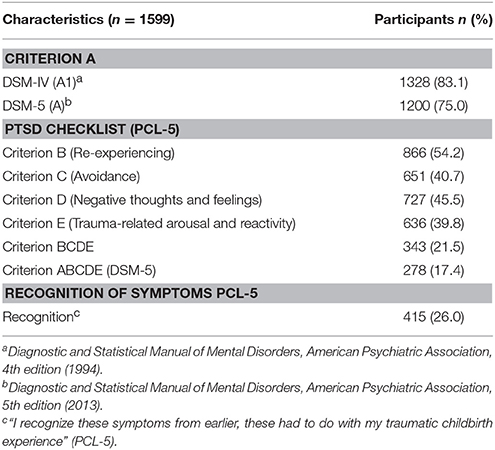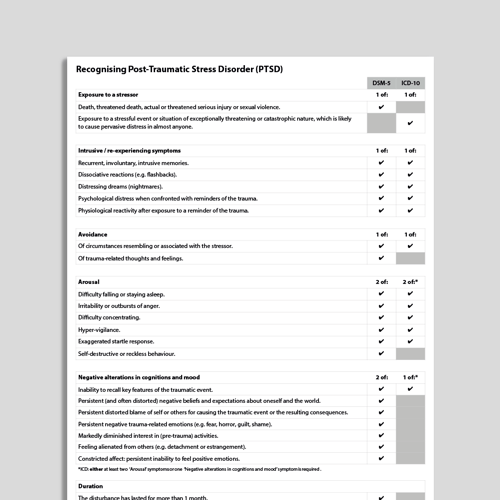
Trauma commonly risk being misdiagnosed as having personality disorders. Thus, patients who suffer from the complex sequelae of chronic In 1992, when first proposing Complex PTSD, Judith Lewis-Herman stated:Ĭoncepts of personality developed in ordinary circumstances are frequently applied to survivors, without an understanding of the deformations of personality which occur under conditions of coercive control.

Complex PTSD was shown to be a separate diagnosis from Borderline Personality Disorder because a significant number did not meet the diagnostic criteria for BPD (and vice versa). Many people with BPD either have PTSD, or meet the proposed diagnostic criteria for Complex PTSD. Recent research has produced detailed analysis of the symptoms of Complex PTSD, PTSD and Borderline Personality Disorder (BPD). The clinical picture of a person who has been reduced to elemental concerns of survival is still frequently mistaken for a portrait of the survivor's underlying character." :388 Complex PTSD, BPD and Personality Disorders Not only to lay people but also to mental health professionals. When the trauma is kept secret, as is frequently the case in sexual and domestic violence, the survivor's symptoms and behavior may appear quite baffling, To underlying character problems, even when the trauma is known. The survivor's difficulties are all too easily attributed Observers who have never experienced prolonged terror, and who have no understanding of coercive methods of control, often presume that they would show greater psychological resistance than the victim in similar circumstances. Judith Lewis-Herman, who first proposed Complex PTSD as a separate diagnosis, stated: In addition to the symptoms above, survivors of prolonged child abuse have an increased risk of both self-injury and repeated victimization, for example relationships with abusive people, sexual harassment, and rape.

The unexpressed anger and internalized rage resulting from the trauma may lead to self-destructive or reckless/risk taking behaviors, e.g., self-harm and/or suicide attempts, which may be driven by a sense of self-hatred.




 0 kommentar(er)
0 kommentar(er)
